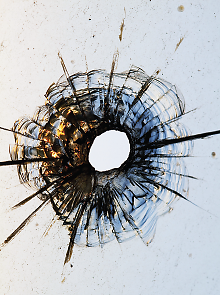Guns and Mental Illness Still an Uncertain Mix for Internists
Abstract
Strategies for reducing firearm violence and death should include a variety of approaches to gun safety combined with strict background checks, according to one physician group.

“Firearm violence is not only a criminal justice issue, but also a public health threat,” said the American College of Physicians (ACP) in a position paper issued in April. “The medical profession has a special responsibility to speak out on prevention of firearm-related injuries and deaths, just as physicians have spoken out on other public health issues.”
To that end, the ACP recommended several strategies, including discussing firearm risks and safety with patients, advocating for universal background checks, and increasing research on firearm violence and ways to reduce injuries attributable to firearms.
“The ACP position helps move the conversation forward and recognizes the importance of physicians attending to issues pertaining to firearms and public health,” said psychiatrist Debra Pinals, M.D., assistant commissioner of forensic services at the Massachusetts Department of Mental Health and an associate professor at the University of Massachusetts Medical School. Pinals was the lead author on APA’s July 2013 statement on firearms and their relationship to mental illness.
The ACP paper also addressed mental health issues. It recommended that background checks be used to keep guns out of the hands of “persons with mental illnesses that put them at a greater risk of inflicting harm to themselves or others.”
However, it also cautioned “against broadly including those with mental illness in a category of dangerous individuals” and called for more access to treatment for people with mental illness. Physicians should have improved training in recognizing mental illnesses among their patients, said the authors.
“We agree that making a blanket statement about mental illness as a risk for firearm violence is not supported by the available evidence,” said Thomas Tape, M.D., of the Nebraska Medical Center in Omaha. Tape is a member of the ACP’s Board of Regents and was chair of the organization’s Health and Public Policy Committee, which produced the paper.
“The paper takes a nuanced approach that makes physicians aware of the generally low likelihood of violence among those with mental health problems, while also calling for more research to better define who is at risk for violent behavior,” said Tape in an interview with Psychiatric News. “In the interim, physicians must rely on their best clinical judgment based on their personal evaluation of the patient.”
The ACP takes a different position from that of the Consortium for Risk-Based Firearm Policy, which argued for focusing attention more on dangerousness—whatever its origin—rather than on people with mental illness (Psychiatric News, December 27, 2013).
That approach means looking at people with a history of violent crime, domestic abuse, or substance abuse, said one member of the consortium, Beth McGinty, Ph.D., an assistant professor of health policy and management at the Johns Hopkins Bloomberg School of Public Health.
“The ACP paper speaks of increasing access to mental health services, but research shows that the vast majority of gun violence isn’t due to mental illness,” McGinty told Psychiatric News. “Access may be inadequate now, but even if we fixed our mental health system so that everyone who needs services gets services, it still wouldn’t fix the overall gun-violence problem in the U.S.”
Internists surveyed by ACP revealed some ambivalence about firearms. On one hand, 95 percent said they favored mandatory background checks for all firearms purchasers, and 85 percent supported “preventing people with mental illness from purchasing guns.” However, 58 percent said they never ask about a gun in the home, 62 percent never suggest keeping guns away from children, and 77 percent wouldn’t suggest that a patient voluntarily remove a gun from the home.
Furthermore, there is not much research on whether such discussions either prevent gun deaths or affect the doctor-patient relationship, said McGinty.
The ACP’s Health and Public Policy Committee is looking into whether educational programs and materials might help physicians counsel patients about firearm safety, said Tape.
“The document may not have gone as far as APA did in asserting the need to protect individuals with mental illness from stigma,” said Pinals. “That suggests an opportunity for further collaboration among all physician specialties related to these complex issues to continually refine our advocacy to ensure that stigma is minimized and access to care is maximized.” ■
“Reducing Firearm-Related Injuries and Deaths in the United States: Executive Summary of a Policy Position Paper From the American College of Physicians” can be accessed here. APA’s “Position Statement on Firearm Access, Acts of Violence, and the Relationship to Mental Illness and Mental Health Services” is posted here.



